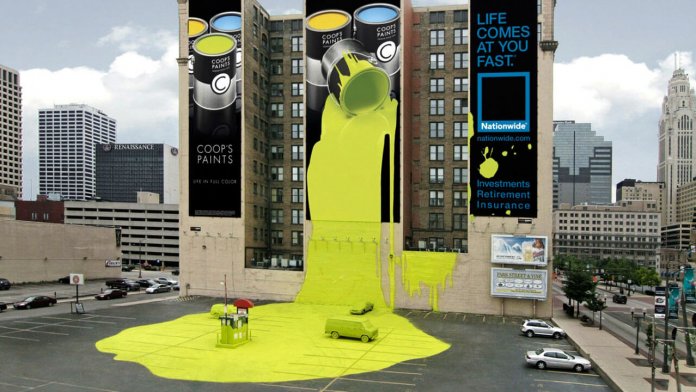Advertising tells us about new products and services, and is very useful, although often annoying. However, there are ads that deceive consumers in the most shameless way. Because of this, some companies spend years in court and are forced to pay compensation to those whose dreams and hopes they have shattered.
Here are the top 10 examples of fraudulent advertising that cost companies millions of dollars.
10. Luminosity
In January 2016, the creators of the popular brain training app were fined $ 2 million by the US Federal Trade Commission (FTC). According to the commission, the company deceived the players with "unfounded" advertising statements.
Lumos Labs argued that its app can help you do better in school, prevent age-related memory loss, and even Alzheimer's. The advertisement also assured that people who will use Luminosity simulators for more than 10 minutes, three times a week, will be able to unleash their "full potential in all aspects of life."
Jessica Rich, director of the FTC, said: "Lumosity simply did not have scientific support for their claims."
9. Nutella
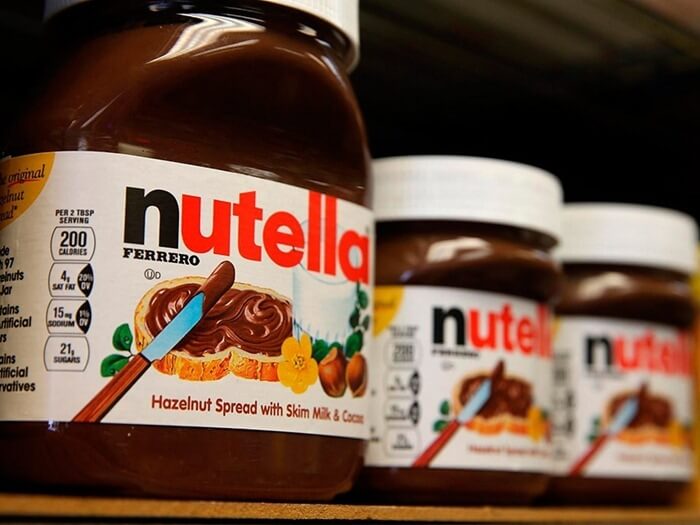 This delicious chocolate spread with nuts is very popular with adults and children. However, in 2012, the Italian manufacturer Ferrero - the owner of the Nutella brand - was embroiled in legal proceedings. The reason is the advertising claim that sweet spread is a healthy product, a healthy breakfast option for children. This completely contradicted the information printed on the product label. Nutella contains over 20 grams of sugar and 11 grams of fat per serving. In addition, the composition of the delicacy varies depending on the country in which it was produced.
This delicious chocolate spread with nuts is very popular with adults and children. However, in 2012, the Italian manufacturer Ferrero - the owner of the Nutella brand - was embroiled in legal proceedings. The reason is the advertising claim that sweet spread is a healthy product, a healthy breakfast option for children. This completely contradicted the information printed on the product label. Nutella contains over 20 grams of sugar and 11 grams of fat per serving. In addition, the composition of the delicacy varies depending on the country in which it was produced.
A California resident filed a lawsuit against the company, claiming she was misled by an advertisement and gave Nutella paste to her child without realizing it contained harmful ingredients. Apparently, instead of just reading the paste label, she decided to completely trust the ad.
As a result, the court ordered Ferrero to pay the plaintiff over $ 3 million. In addition, individual consumers had to pay, who bought cans of the product between 2008 and 2012. Since then, Ferrero has changed its strategy and now lists the sugar content of Nutella on the front of the can, in an attempt to be more transparent.
8. Activia
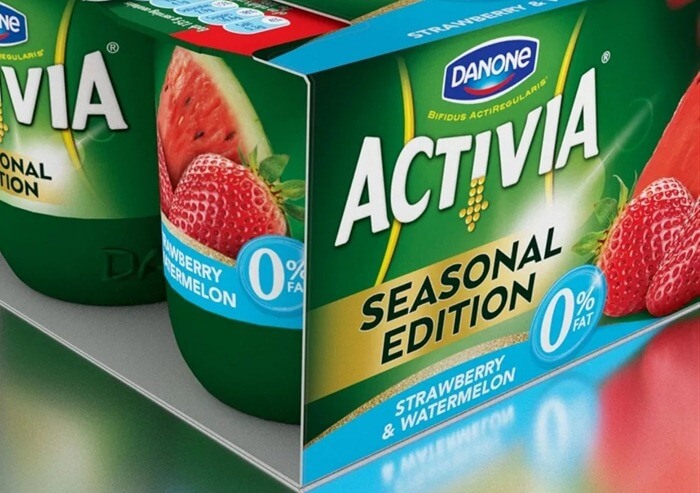 In 2008, Dannon Co - the US arm of Danone Corporation, which makes the probiotic dairy brand Activia - was accused of false scientific claims about the benefits of its product.
In 2008, Dannon Co - the US arm of Danone Corporation, which makes the probiotic dairy brand Activia - was accused of false scientific claims about the benefits of its product.
Activia yoghurts have been touted as products that have been "clinically" and "scientifically" proven to benefit the immune system and improve digestion. At one time in the US there was an advertising campaign for Activia, led by actress Jamie Lee Curtis. She claimed that the Activia yoghurts contained special bacterial ingredients. Apparently, their miraculousness explains the fact that the price of yoghurt was 30% higher than that of other similar products.
The corporation, as part of a pre-trial settlement, was forced to create a fund in the amount of $ 35 million.It pays compensation (up to $ 100) to all American consumers who apply for an ad and product mismatch.
7. Airborne
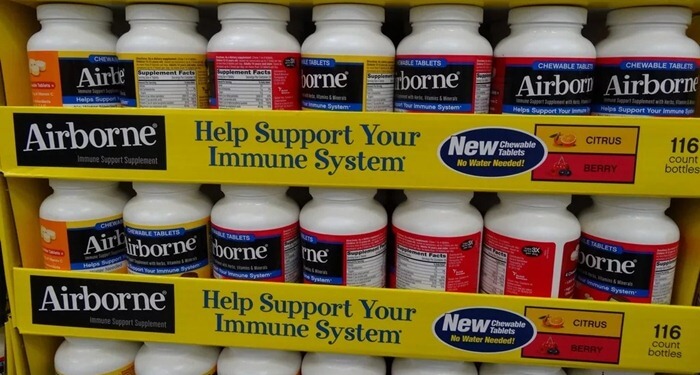 Advertisements for a very popular herbal supplement in the 90s lured customers with the promise of preventing contamination from harmful bacteria and germs and avoiding common ailments such as the flu and the common cold.
Advertisements for a very popular herbal supplement in the 90s lured customers with the promise of preventing contamination from harmful bacteria and germs and avoiding common ailments such as the flu and the common cold.
The problem, however, was that there was no medical research to prove the Airborne's benefits.
As true gentlemen, consumers were asked to simply believe that this dietary supplement is able to protect against pathogenic microorganisms. But the creator of the product was hardly a gentleman who should have been taken at his word.
After the Airborne fraudulent advertising case went to court, it was revealed that the miracle drug contained a mixture of minerals, vitamins and herbs. Shortly after these results were made public by the media, Airborne began changing its advertisements. Now they talked about "immune stimulation", not about the prevention of flu and colds.
In the end, the manufacturer Airborne was forced to pay more than $ 23 million to settle the claim.
6. ExtenZe
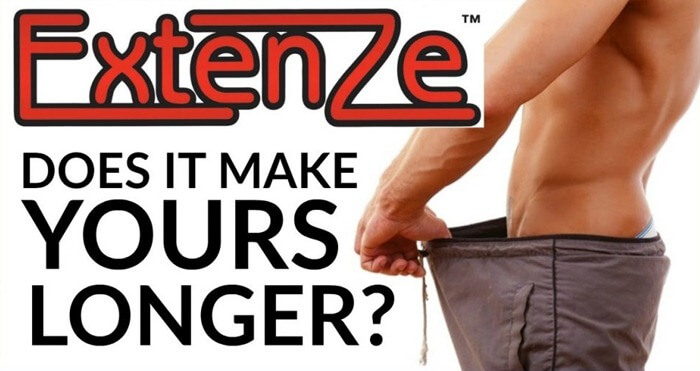 The creators of ExtenZe did not guarantee the size of the owner of the largest penis in the world, but they assured male clients that their natural supplement would help lengthen the penis.
The creators of ExtenZe did not guarantee the size of the owner of the largest penis in the world, but they assured male clients that their natural supplement would help lengthen the penis.
Unfortunately, this product is unable to change the anatomy of its consumer. It was just aimed at improving erection.
Manufacturing firm ExtenZe has been sued for false advertising. She had to pay a $ 6 million fine and be glad the court didn’t do it anymore.
5. Classmates.com
 Some of us graduate from high school and choose to forget about it like a bad dream. But there are many people who recall with pleasure the "wonderful school years" and dream of joining again the old friends of the past. It was these feelings that the startup Classmates.com played on, which focused on finding former classmates.
Some of us graduate from high school and choose to forget about it like a bad dream. But there are many people who recall with pleasure the "wonderful school years" and dream of joining again the old friends of the past. It was these feelings that the startup Classmates.com played on, which focused on finding former classmates.
In 2008, a lawsuit was filed against Classmates.com for attracting people to a paid subscription. The resource informed its users that former classmates were looking for them. But in order to "see" them virtually, you first had to pay $ 15 for the premium version of the account. In the end, Classmates.com agreed to pay $ 9.5 million to users, although it refused to plead guilty to any violations of the law.
4. Red Bull
It is unethical to promise people things that cannot be obtained. For example, declare that the product will give you wings and the ability to fly. Red Bull, a popular energy drink, did just that, according to its accusers.
In 2014, the manufacturer Red Bull agreed to pay $ 13 million after a lawsuit arguing that the drink was not really “inspiring.
Hardly anyone seriously decided that they could fly like a bird after drinking Red Bull. However, the advertising slogan gave reason to believe that after drinking a can of Red Bull, a person will receive more energy, increase his mental activity and increase his concentration. Alas, no clinical evidence has been presented to confirm all of these positive qualities of the drink.
3. Hyundai and Kia
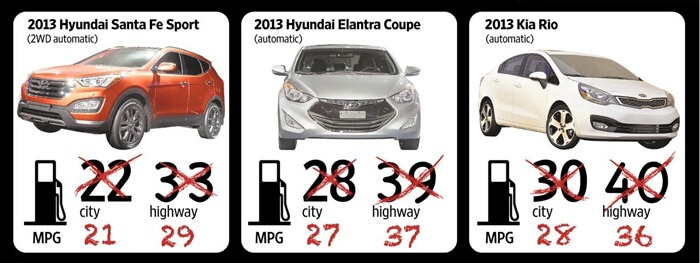 Fuel consumption is a very important factor when choosing a car. So when a customer pays for his new car, he certainly expects to get what the automaker promised him.
Fuel consumption is a very important factor when choosing a car. So when a customer pays for his new car, he certainly expects to get what the automaker promised him.
In the case of Hyundai and its partner Kia Motors, the promises were worth millions of dollars.
In 2012, they were caught in the fact that "on paper" they reduced fuel consumption in some brands of their cars. The Koreans themselves claimed that an accidental error had crept into their calculations and that it was only a 3% reduction in fuel consumption. However, the American court ordered the South Korean auto giant to pay $ 395 million to the owners of 900 thousand cars.
2. Skechers Shape-ups
The Skechers company has promised that these sneakers will allow owners to improve their fitness and burn excess calories.But then Skechers deceived its customers even further, pointing out in advertisements that its shoes could even help improve cardiovascular health. A number of celebrities have been recruited to advertise the sneaker, including Brooke Burke and Kim Kardashian.
Well, the US Federal Trade Commission has badly damaged the cardiovascular system of the Skechers leadership. In the end, the company was forced to pay $ 40 million for its deceitful advertising campaign.
1. Volkswagen
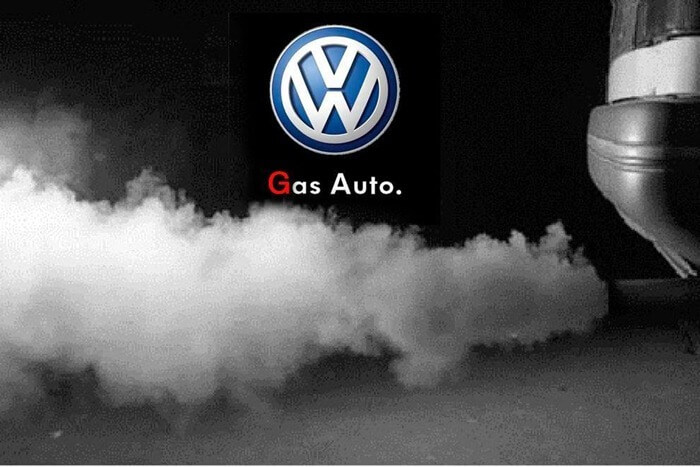 In the first place in the list of companies financially affected by unfair advertising is largest car manufacturer in the world.
In the first place in the list of companies financially affected by unfair advertising is largest car manufacturer in the world.
To pass government tests for the purity of emissions, the German auto brand installed software in its cars, which underestimated the data on harmful gases emitted into the air dozens of times. In addition, emission cleaners were used to trick the testers.
Between 2008 and the end of 2015, VW sold between 5 million and 11 million vehicles that were advertised as “clean” diesel vehicles. These include the Golf TD, Beetle TD, Jetta TD, Passat TD and Audi A3 TD.
When a research team from the University of West Virginia found that Volkswagen vehicles were significantly in excess of exhaust emissions, the US and European authorities initiated a criminal investigation. Volkswagen has allocated $ 18 billion to cover legal costs in the Dieselgate case.
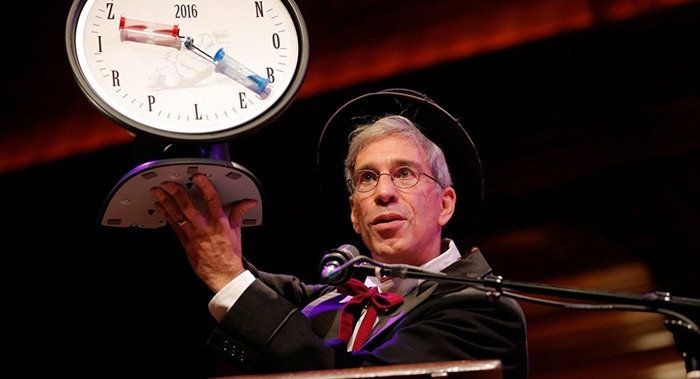 And in 2016, the auto concern was awarded the Shnobel Prize with a long wording “for solving the problem of toxicity of automobile exhaust in the atmosphere by automatically switching on exhaust cleaning during testing”.
And in 2016, the auto concern was awarded the Shnobel Prize with a long wording “for solving the problem of toxicity of automobile exhaust in the atmosphere by automatically switching on exhaust cleaning during testing”.

